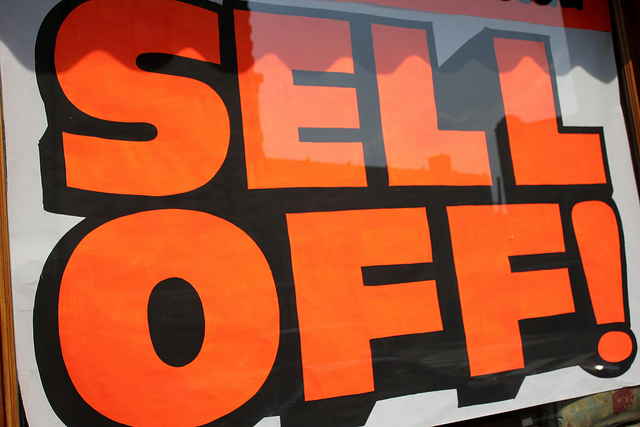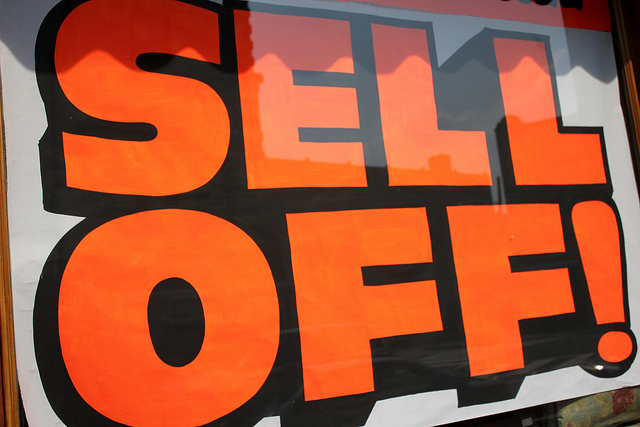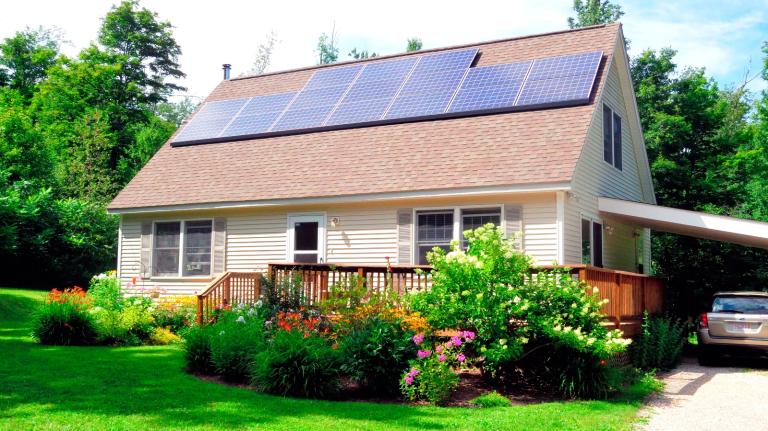 Might a little bit of the free market be just what we need to get Americans paying something closer to the true cost of driving?Photo: Marius WatzEveryone knows about Wisconsin Gov. Scott Walker’s unhinged attack on his state’s unions, but did you know that he’s also pushing for the right to “sell any state-owned heating, cooling, and power plant [PDF] or … contract with a private entity for the operation of any such plant, with or without solicitation of bids, for any amount”?
Might a little bit of the free market be just what we need to get Americans paying something closer to the true cost of driving?Photo: Marius WatzEveryone knows about Wisconsin Gov. Scott Walker’s unhinged attack on his state’s unions, but did you know that he’s also pushing for the right to “sell any state-owned heating, cooling, and power plant [PDF] or … contract with a private entity for the operation of any such plant, with or without solicitation of bids, for any amount”?
Walker’s not alone in his inclination to sell off public infrastructure; for the past several years, budget-strapped governors and mayors all around the country have been trying to unload their roads, ports, and even parking meters for a temporary budget fix.
Though the influx of money is nice, most of the time these politicians face critics who condemn the moves as economic foolishness, Band-Aids on structural problems.
Matt Taibbi points out in his new book Griftopia that many of the private investors eager to snap up this infrastructure are playing with money from oil states like Libya, Saudi Arabia, and Qatar. He writes about the proposed sell-off of the Pennsylvania Turnpike:
When you’re trying to sell a highway that was once considered one of your nation’s great engineering marvels — 532 miles of hard-built road that required tons of dynamite, wood, and steel and the labor of thousands to bore seven mighty tunnels through the Allegheny Mountains — when you’re offering that up to petro-despots just so you can fight off a single-year budget shortfall, just so you can keep the lights on in the state house into the next fiscal year, you’ve entered a new stage in your societal development.
He means that in a bad way, but could this trend actually mark a positive new stage in our societal development?
After all, the best policy outcome would be getting people to drive less. For decades, we’ve had it backwards, keeping the price of driving artificially low — building a massive network of roads and highways with taxpayer dollars, requiring properties to provide parking spaces. Might a little bit of the free market be just what we need to get Americans paying something closer to the true cost of driving?
What Taibbi fails to point out (at least in this excerpt of his book) is that we shouldn’t be particularly proud of the Turnpike. It is just one expensive, crumbling cog in our national fossil-fuel-based infrastructure, one of many embarrassing reminders of the greatest misallocation of resources in the history of the world.
When you look at the situation in this light, it almost seems like we’re playing a clever trick by selling off this stuff. We have a ton of sunk costs in our petroleum-based transportation infrastructure. We’re spending more than $300 million a day to buy oil from foreign countries. Now, we’re getting them to give some of the money back to us — in the form of 99-year leases of things like toll highways and parking meters. When we reach our post-carbon future, those assets will be near-worthless.
Consider Indiana Gov. Mitch Daniels’ decision in 2006 to lease the Indiana Toll Road. As Matt Dellinger describes in the book Interstate 69, Daniels determined that it cost more for the state of Indiana simply to collect the tolls than the state was taking in from toll money. If that’s the case, why not shut down all the toll booths and just put out a cigar box?
But leasing the Toll Road was even more of a no-brainer for Daniels than the “honor system” option, because the company signed a detailed contract requiring it to maintain the road. In one move, Daniels got $3.85 billion to help take care of his budget problem, and got the state off the hook for the responsibility of operating and maintaining the highway. It’s a win-win even before you consider that the public value of the road is set to nosedive as gas prices soar and car trips decline.
Surely Republicans like Walker and Daniels haven’t been paging through The Post-Carbon Reader, but they may have unwittingly hit on a great strategy for transitioning to a clean-energy future: get rich private interests to buy up dirty-energy infrastructure that will become obsolete in a post-peak-oil, carbon-constrained world.
It makes sense to conservative politicians because it decreases the size of government. For the rest of us, when we get conservatives to admit that our fossil-fuel-based infrastructure is no longer cost-effective, that’s one step down the road of admitting we need to replace it with something better.




